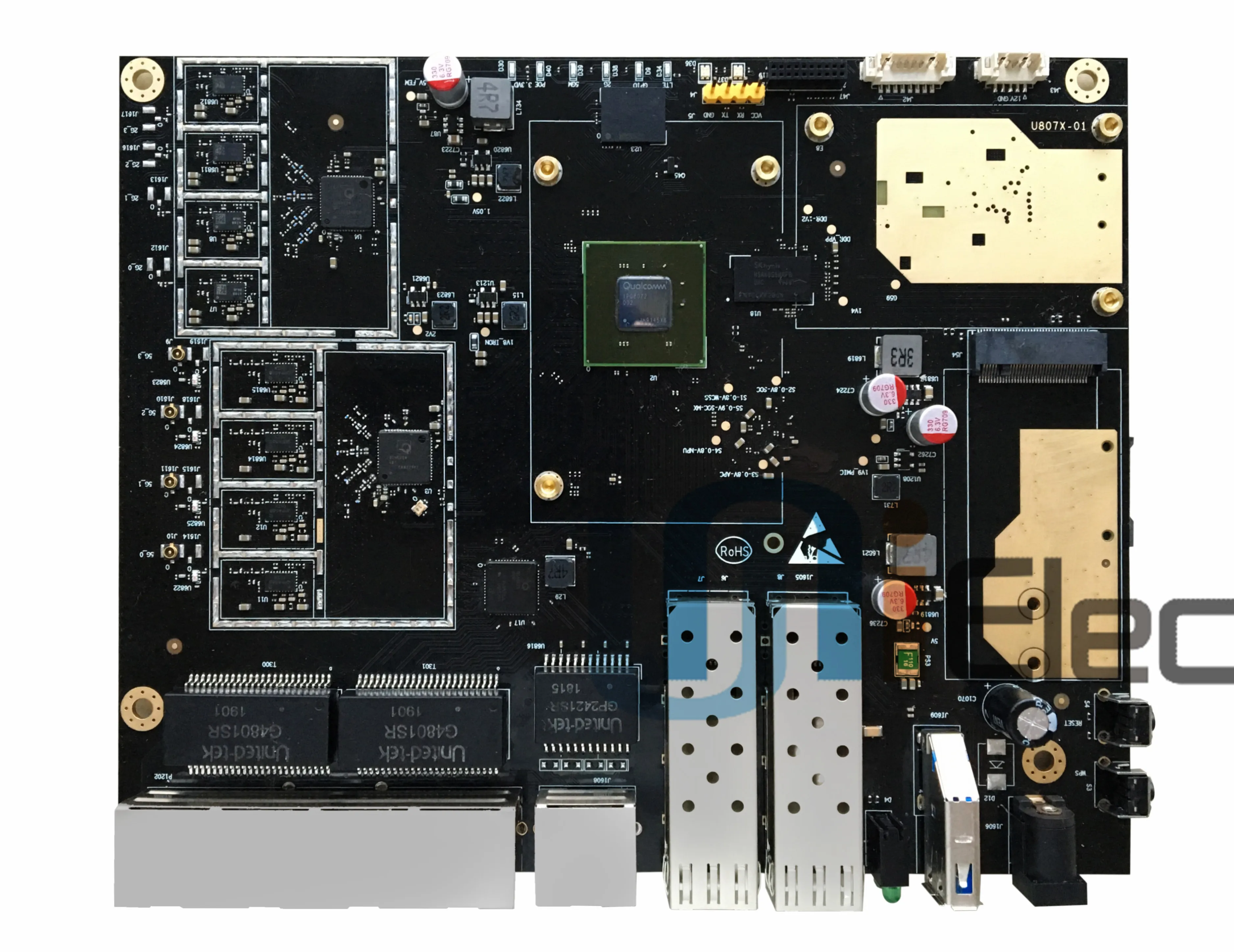TheLostSwede
Very Senior Member
I wanted to gauge the interest of the community here, to see if there are enough people that would want to get involved in a project. I’ve noticed a lot of people here are looking for routers that have features that you normally don’t find from the major consumer router makers, some of them hardware based, some of them software based.
I recently came across what should be a very high-end router, based on the QCA IPQ8072A SoC, with two 10Gbps ports, 1GB of RAM and even an M.2 slot for an optional 5G modem.
The router is apparently intended as a carrier device by the company that makes it and I have in all fairness not approached them as yet, since I wanted to see if there was any interest from the community here to try and source this product, get a “custom” OS up and running on it and have it supported by the community here or at least get it supported by OpenWRT/DD-WRT if possible.

I obviously don’t know the pricing, but I would guess it would be cheaper than some of the branded routers in the market based on the same SoC. Normally the MoQ for something like this is one to 10k units, so that might be another issue. On top of that, there’s no word on what kind of state the software support is in, but as I have worked for a router manufacturer in the past, I do at least know some people that could get it to a fully working state, for a cost.
Obviously this is just a crazy idea of mine at this point, but with enough interest, it could be pulled off. I know not everyone is keen on OpenWRT as an OS, but it’s apparently not a huge effort to make a custom UI for it and the people I have worked with in the past, have already done it for different products. The main advantage of going down the OpenWRT route is that there will be regular updates that wouldn’t require a huge effort for a project like this. Other hardware can also be considered if price is a more important factor to those interested and I’m happy to look for alternatives, if that would prove to be a more viable route.
So please, thoughts, comments, feedback on my crazy idea.
I recently came across what should be a very high-end router, based on the QCA IPQ8072A SoC, with two 10Gbps ports, 1GB of RAM and even an M.2 slot for an optional 5G modem.
The router is apparently intended as a carrier device by the company that makes it and I have in all fairness not approached them as yet, since I wanted to see if there was any interest from the community here to try and source this product, get a “custom” OS up and running on it and have it supported by the community here or at least get it supported by OpenWRT/DD-WRT if possible.
I obviously don’t know the pricing, but I would guess it would be cheaper than some of the branded routers in the market based on the same SoC. Normally the MoQ for something like this is one to 10k units, so that might be another issue. On top of that, there’s no word on what kind of state the software support is in, but as I have worked for a router manufacturer in the past, I do at least know some people that could get it to a fully working state, for a cost.
Obviously this is just a crazy idea of mine at this point, but with enough interest, it could be pulled off. I know not everyone is keen on OpenWRT as an OS, but it’s apparently not a huge effort to make a custom UI for it and the people I have worked with in the past, have already done it for different products. The main advantage of going down the OpenWRT route is that there will be regular updates that wouldn’t require a huge effort for a project like this. Other hardware can also be considered if price is a more important factor to those interested and I’m happy to look for alternatives, if that would prove to be a more viable route.
So please, thoughts, comments, feedback on my crazy idea.
Last edited:

